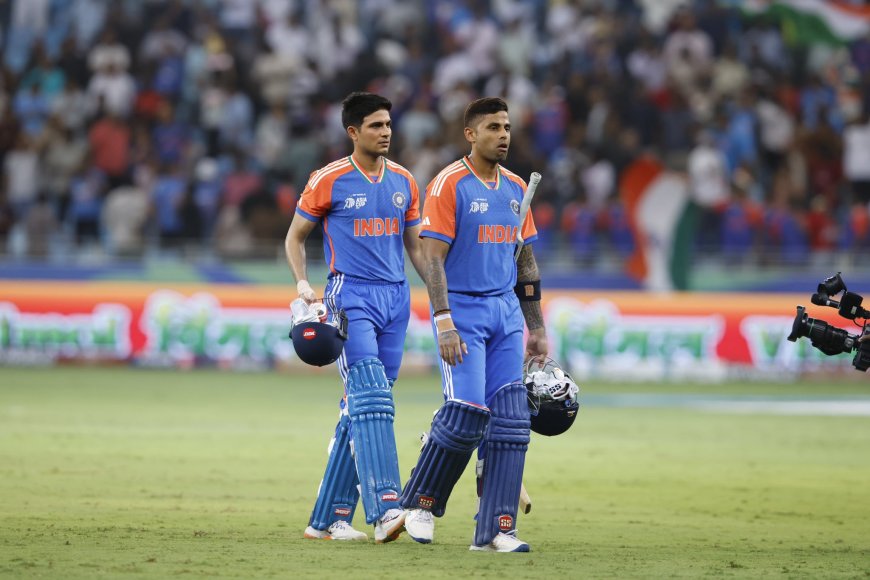India-Pakistan Clash Ignites Asia Cup Tensions
India-Pakistan clash in Asia Cup 2025 fuels high emotions, political debates, and cricket fever, making it the tournament’s most awaited battle.

Introduction
Every time India and Pakistan face off in cricket, the match is more than just sport—it’s loaded with emotion, expectations, and sometimes politics. Ahead of their clash in the Asia Cup 2025, tensions are running high again. Recent events have added fuel—military confrontations, diplomatic friction, public outcry—and both teams are preparing for a match charged as much by national sentiment as by cricketing skill.
History & Background of India-Pakistan Cricket Rivalry
-
India and Pakistan first played each other in international cricket shortly after partition (late 1940s), and ever since, their matches have carried symbolic weight beyond the scoreboard.
-
Diplomatic ups and downs have often interrupted or influenced cricket relations—bilateral series have long been halted; most India-Pakistan encounters happen only in multi-nation tournaments at neutral venues.
-
Previous Asia Cup tournaments have seen similar high-stakes matches, but rarely with the current level of external tension. Military skirmishes, cross-border incidents, political speeches have contributed to an atmosphere where a cricket match becomes a metaphor
What’s Happening Now
-
The match is scheduled for 14 September 2025 in Dubai during the Group A stage of Asia Cup 2025.
-
This will be the first cricket match between India and Pakistan since their military conflict in May 2025, which included artillery, missile exchanges, and drone strikes, before a ceasefire was reached.
-
Both captains—India’s Suryakumar Yadav and Pakistan’s Salman Agha—have stated that there will be no instructions to temper aggression, but players are expected to keep within the spirit of the game.
-
Political groups in India (e.g. Gaurav Gogoi, Congress) have called on the BCCI to reconsider playing Pakistan, citing national security and sentiment after incidents like the Pahalgam attack.
-
BCCI has clarified that it is following government policy which allows Indian teams to play Pakistan in multi-nation tournaments. Bilateral series remain off the table.
Key Points & Facts
| Point | Detail |
|---|---|
| Neutral Venue | India vs Pakistan matches happen at neutral venues in tournaments, not bilateral series. Dubai is such a venue. |
| Recent Military Conflict | May 2025 conflict has added emotional charge. Borders, cross-fire, lives lost—these have fed into national sentiment. |
| Tickets & Commercial Stakes | Huge demand; high ticket prices; media rights, viewership, sponsorships depend heavily on India-Pakistan matchups. |
| Players to Watch | India: strong T20 form, key bowlers; Pakistan: trying to rebuild, some new faces, needing to overcome form issues. |
| Public / Political Pressure | Some sections want boycott; others argue sports and politics should be separate; the government position is to allow participation. |
Advantages & Disadvantages
Advantages (Positives):
High viewer interest & revenue: Matches like these draw huge audiences, making tournaments more financially viable.
Sporting diplomacy: Even when relations are hostile, a match can act as a conduit for softer ties (people-to-people, cultural exchanges).
Motivation for players: Players tend to bring their A-game for high-stakes rivalry; good performance under pressure.
Tournament profile: Asia Cup as a whole gains prestige when marquee matches deliver. Boosts attention for all matches.
Disadvantages (Negatives):
Risk of flare-ups: On ground tempers, sledging, off-field statements can aggravate tensions. Might lead to incidents.
Political backlash: Some see playing Pakistan amid conflict as insensitive; could lead to public protest or demands for boycott.
Security costs & logistics: Neutral venues, extra security measures, diplomatic coordination raise costs.
Emotional stress: For players, fans, how the media handles it may intensify emotional burden beyond normal sports pressure.
Recent Updates
-
Shubman Gill’s two-word social media post has stirred further buzz among fans in the build-up.
-
India opened the Asia Cup with a crushing win over UAE (nine wickets), setting a strong momentum before facing Pakistan.
-
Public Interest Litigation (PIL) filed in Indian Supreme Court seeking cancellation of the India-Pakistan match. Outcomes not yet known.
-
Statements from both captains that aggression will be allowed to some extent under rules are adding to anticipation.
Significance & Why It Matters
-
This confrontation is more than sport—it reflects how deeply cultural, political and national emotions are linked with cricket in South Asia.
-
The match could influence public mood and media narrative regarding India-Pakistan relations.
-
It is likely to impact how future Asia Cups or ICC tournaments are organized (venue choices, security, broadcast pricing etc.).
-
Also important for younger players: high pressure match experiences contribute to growth.
Final Thoughts & Conclusion
The India-Pakistan clash in the Asia Cup 2025 isn’t just another fixture—it’s a symbol. A match played in the wake of recent conflict, under public pressure, under the spotlight of fans and politicians alike. For India, riding on the momentum of a strong opening win, and for Pakistan, seeking to overturn form and narrative, there's pressure from every direction.
If the match is played with composure, dignity, respect, it could become a positive example of sport transcending politics. But there is always the risk that it deepens divides or becomes a proxy for other tensions.
In the end, cricket matches like these are powerful because they matter so much to people. They offer moments of unity, rivalry, passion, but also test the maturity of all involved—players, boards, fans, media. Let’s hope the outcome is one where cricket is the winner—played hard, fair, and with respect.

 Ellofacts
Ellofacts 





